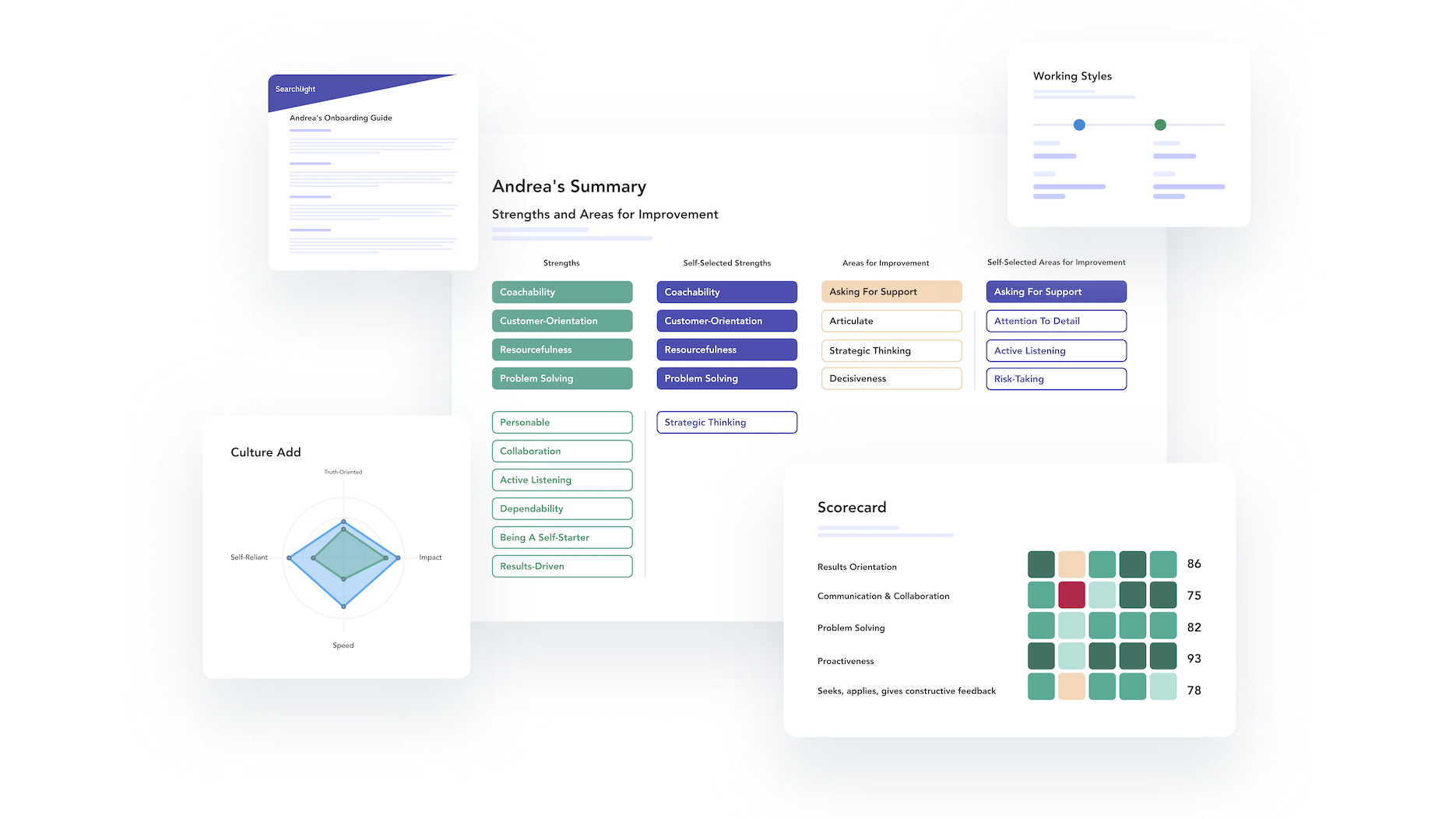Searchlight puts new capital to work with expanded talent intelligence tools
Users of Searchlight saw a 45% improvement in retention, 40% faster hire time and employees hired stayed on average 72% longer than when hired through other approaches.

Someone’s education and work history can be similar to other resumes in a pile, but Searchlight aims to improve how companies measure a person’s soft skills to provide not only a differentiator, but also a better indicate of how well that person will ultimately fit into the organization.
Kerry Wang and her twin sister, Anna Wang, saw this problem firsthand when they tried to distinguish themselves when they applied for the same job. Kerry Wang told TechCrunch that she felt some interview processes didn’t enable enough time for them to fully demonstrate how they were different.
“Nearly half of all hires fail within 18 months, so we were inspired to change the current talent software that labeled us as the same person,” Kerry Wang said. “Right now, given ‘The Great Resignation,’ you can’t just hire fast, but you have to hire well to win the talent war. This is difficult when there is a gap in measuring the quality of hires.”
They started Searchlight in 2018 to develop technology that uses behavioral reference data and prescriptive analytics to give employers a more 360-degree view of a potential candidate’s strengths and weaknesses that might not appear on a resume or come out during an interview.
Today, the company announced $17 million in Series A funding to expand their offerings to include one-click reference and candidate assessments that take less than 15 minutes, a quality of hire dashboard for greater visibility into how to improve future hiring and a “people science engine” that connects behavioral data collected pre-hire to employee outcomes as a way to show best practices for recruiting and highlight the profiles of high performers.
The latest round of funding was led by Founders Fund with participation from Accel, Shasta, Kapor Capital, Operator Collective and a group of angel investors including executives at companies like Coda, Confluent and Plaid. It gives the company total funding to date of $20 million, which includes a $2.5 million seed round in 2019.
Talent comes in all shapes and sizes, and Searchlight is the latest to see its approach backed by venture capital. Other recruitment technology companies recently announcing funding include fractional worker marketplace Continuum, Sense and Karat.

Searchlight collection of behavioral data. Image Credits: Searchlight
Wang says her company is unique in the level of data and insights given to users as well as better recommendations. It is also able to show companies characteristics that they should be looking for in candidates and even disproves assumptions that companies have of their workforce makeup.
“You have to recognize what leads to success, and typically that is relying on your gut,” she added. “We create success profiles on what leads to retention based on soft skills.”
The company now works with moe than 60 companies, including Udemy, Talkdesk and Zapier, and has 15 employees, up from four last year. It’s customer base also more than tripled in the past year. Wang also shared that after using Searchlight, many of its customers are doubling down on their investment in the product.
The new funding will enable the company to make additional hires to double the size of the team next year, and invest in product development and its go-to marketing strategy.
As part of the investment, Founders Fund general partner Keith Rabois has joined Searchlight’s board.
Rabois said over his 20-year career of founding, funding and leading technology companies, the common denominator was the need for good people, saying, “The team you build is the company you build.”
“Searchlight resonated with me,” he added. “I have been on more than 15 boards, and every company talks about retention and what to do to improve retention. Constantly replacing talent can’t build a good company. I was always looking to improve myself and have the data and tools for me to get better. Searchlight offers the best data to make those hiring decisions.”







